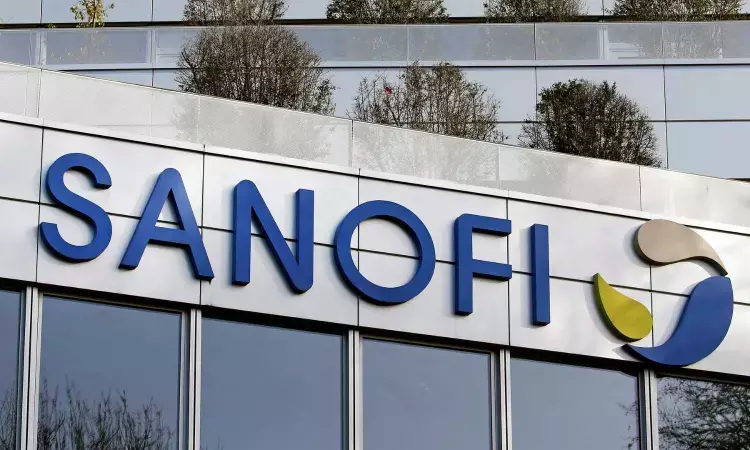- Home
- Medical news & Guidelines
- Anesthesiology
- Cardiology and CTVS
- Critical Care
- Dentistry
- Dermatology
- Diabetes and Endocrinology
- ENT
- Gastroenterology
- Medicine
- Nephrology
- Neurology
- Obstretics-Gynaecology
- Oncology
- Ophthalmology
- Orthopaedics
- Pediatrics-Neonatology
- Psychiatry
- Pulmonology
- Radiology
- Surgery
- Urology
- Laboratory Medicine
- Diet
- Nursing
- Paramedical
- Physiotherapy
- Health news
- Fact Check
- Bone Health Fact Check
- Brain Health Fact Check
- Cancer Related Fact Check
- Child Care Fact Check
- Dental and oral health fact check
- Diabetes and metabolic health fact check
- Diet and Nutrition Fact Check
- Eye and ENT Care Fact Check
- Fitness fact check
- Gut health fact check
- Heart health fact check
- Kidney health fact check
- Medical education fact check
- Men's health fact check
- Respiratory fact check
- Skin and hair care fact check
- Vaccine and Immunization fact check
- Women's health fact check
- AYUSH
- State News
- Andaman and Nicobar Islands
- Andhra Pradesh
- Arunachal Pradesh
- Assam
- Bihar
- Chandigarh
- Chattisgarh
- Dadra and Nagar Haveli
- Daman and Diu
- Delhi
- Goa
- Gujarat
- Haryana
- Himachal Pradesh
- Jammu & Kashmir
- Jharkhand
- Karnataka
- Kerala
- Ladakh
- Lakshadweep
- Madhya Pradesh
- Maharashtra
- Manipur
- Meghalaya
- Mizoram
- Nagaland
- Odisha
- Puducherry
- Punjab
- Rajasthan
- Sikkim
- Tamil Nadu
- Telangana
- Tripura
- Uttar Pradesh
- Uttrakhand
- West Bengal
- Medical Education
- Industry
Sanofi gets European Commission nod for hemolytic anemia drug Enjaymo

Enjaymo is a humanized monoclonal antibody that is designed to selectively target and inhibit C1s in the classical complement pathway, which is part of the innate immune system.
Paris: Sanofi has announced that the European Commission (EC) has granted marketing authorization for Enjaymo (sutimlimab) for the treatment of hemolytic anemia in adult patients with cold agglutinin disease (CAD), a rare, serious, and chronic autoimmune hemolytic anemia, where the body's immune system mistakenly attacks healthy red blood cells and causes their rupture, known as hemolysis.
Dietmar Berger, MD, PhD, Chief Medical Officer, Global Head of Development at Sanofi said, "This approval highlights our ambition to develop first- and best-in-class medicines that transform people's lives. Up until now, patients in Europe had to rely on a combination of cold avoidance, blood transfusions, and off-label treatments to manage their disease. The approval of Enjaymo by the European Commission provides patients, for the first time, with access to a therapy that can make a meaningful difference in the treatment and daily experience of living with CAD."
Enjaymo is currently the only approved treatment for CAD and is a first-in-class humanized monoclonal antibody that is designed to selectively target and inhibit the classical complement pathway-specific serine protease, C1s. It will be available as a 50mg/mL solution for infusion.
Alexander Röth, MD, Department of Hematology and Stem Cell Transplantation, University Hospital, University of Duisburg-Essen, Germany said, "Coupled with diagnostic journeys that can last years, the impact of fatigue on quality of life in CAD is often debilitating and is comparable to conditions such as cancer-related anemia and other autoimmune disorders. Clinicians now have a much-needed therapeutic option to offer to their patients."
The EC approval is based on data from two Phase 3 clinical trials: CADENZA, a double-blind, placebo-controlled clinical trial of adults with CAD without a recent history of blood transfusion (within the past 6 months), and CARDINAL, a 26-week open-label, a single-arm pivotal study in patients with CAD who have had a recent blood transfusion.
In the CADENZA Part A trial, eligible patients were randomized 1:1 to receive a fixed weight-based dose (6.5g or 7.5g) of Enjaymo or placebo via intravenous infusion on Day 0, Day 7, and then once every other week up to Week 26. The open-label Part B of the study assessed long-term safety as well as durability of response to Enjaymo in patients with CAD. In the CADENZA Part A study, Enjaymo met its primary composite endpoint and all secondary endpoints and demonstrated inhibition of hemolysis, increase in hemoglobin levels, and clinically meaningful improvement in The Functional Assessment of Chronic Illness Therapy (FACIT)-Fatigue scores. Enjaymo demonstrated an acceptable safety profile and was generally well-tolerated. 96% of patients in the Enjaymo group and 100% of patients in the placebo group experienced at least one treatment-emergent adverse event (TEAE). Headache (22.7% vs 10.0%), hypertension (22.7% vs 0%), rhinitis (18.2% vs 0%), Raynaud phenomenon (18.2% vs 0%), and acrocyanosis (13.6% vs 0%) were reported more frequently in Enajymo-treated patients compared with placebo.
In the CARDINAL Part A trial, patients received a fixed weight-based dose (6.5g or 7.5g) of Enjaymo via intravenous infusion on Day 0, Day 7, and then once every other week up to Week 26. Part B of the study evaluated the long-term safety as well as durability of response to Enjaymo in patients with CAD over a 2-year follow-up. In the CARDINAL Part A study, the efficacy of Enjaymo was assessed based on the achievement of a primary composite endpoint (Hb≥12 g/dL or an increase of at least 2 g/dL; no blood transfusion or prohibited medications from Weeks 5 through 26) and different secondary endpoints, including improvements in hemoglobin, normalization of bilirubin, and FACIT-fatigue score.
Read also: Sanofi Dupixent recommended for EU approval by CHMP for prurigo nodularis treatment
Ruchika Sharma joined Medical Dialogue as an Correspondent for the Business Section in 2019. She covers all the updates in the Pharmaceutical field, Policy, Insurance, Business Healthcare, Medical News, Health News, Pharma News, Healthcare and Investment. She has completed her B.Com from Delhi University and then pursued postgraduation in M.Com. She can be contacted at editorial@medicaldialogues.in Contact no. 011-43720751


